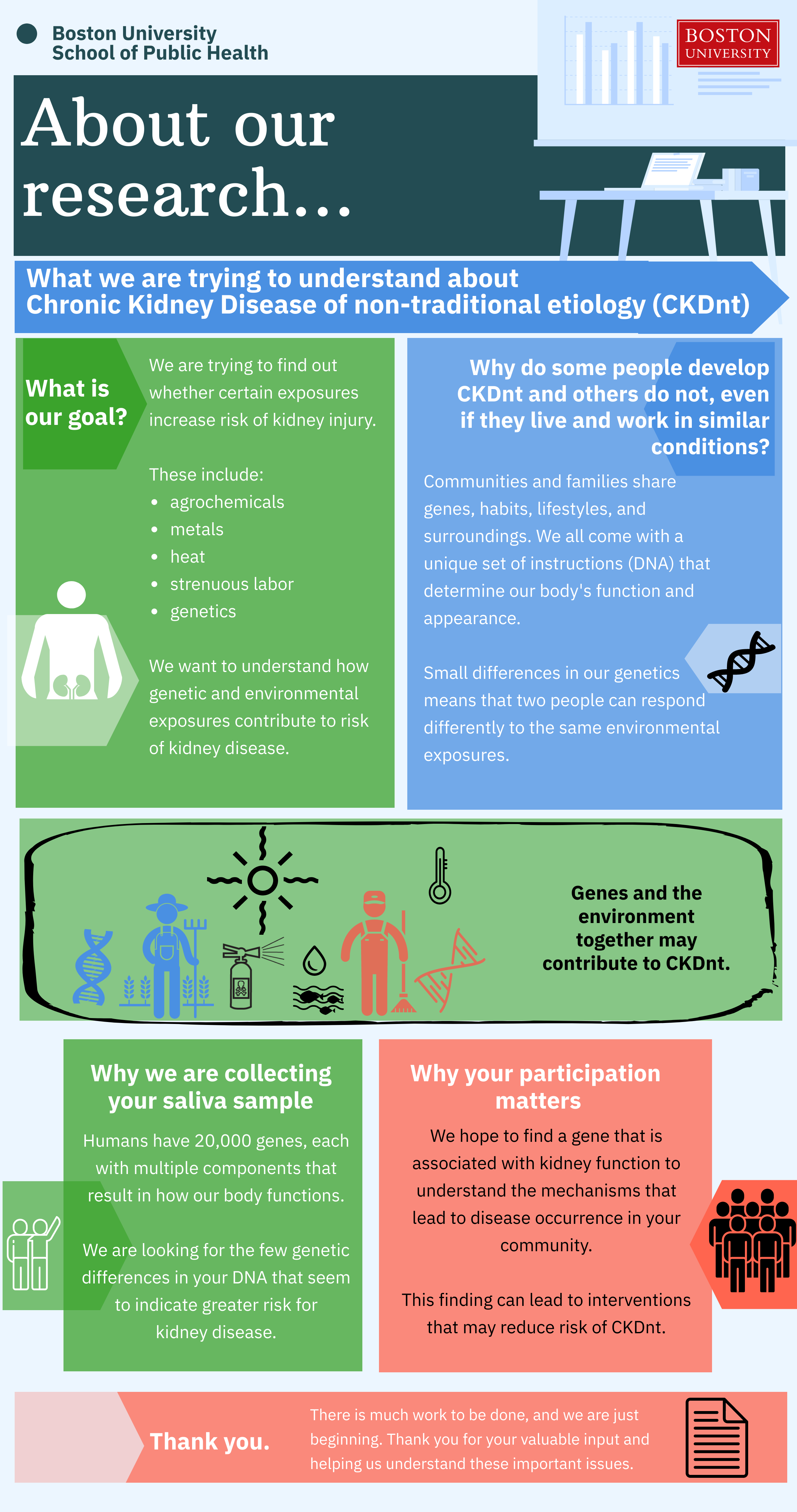Genetics Participants
Thank you for your participation in the genetics case-control study. We are very grateful for your collaboration. The information you have provided is crucial in understanding more about CKDnt in your community.
About the study: We ask many questions about family history, medical history, work history, diet, and other factors that may affect development of kidney disease. We also collect blood, urine, and saliva (DNA). The blood and urine samples are analyzed in Nicaragua, stored, and eventually sent to the U.S. where the sample will be stored for future use. The results from the samples analyzed in Nicaragua are returned to participants very soon after they are taken. The saliva (DNA) sample is not analyzed in Nicaragua; it is sent to the U.S. for genetic analysis. We are comparing the few genetic differences of people with and without disease, and looking for gene(s) that are associated with kidney function. If we find a gene(s) that may indicate greater risk for kidney disease, we seek to understand the mechanism that led to disease occurrence, and eventually, what environmental exposure(s) are contributing to risk.
Study updates: The field team is actively inviting people to participate in the case-control study. We are working on the quality control and quality assurance of all data collected, so we can create a database we are confident in. We have analyzed in a special laboratory the DNA samples collected, and are now working on the data analysis in order to identify whether there are any genes that may help explain why some people get CKDnt and others do not.
Learn more: If you are ever interested in learning more about the study or have questions about your kidney health, feel free to reach out to the study leader in Nicaragua, Dr. Juan Jose Amador.
